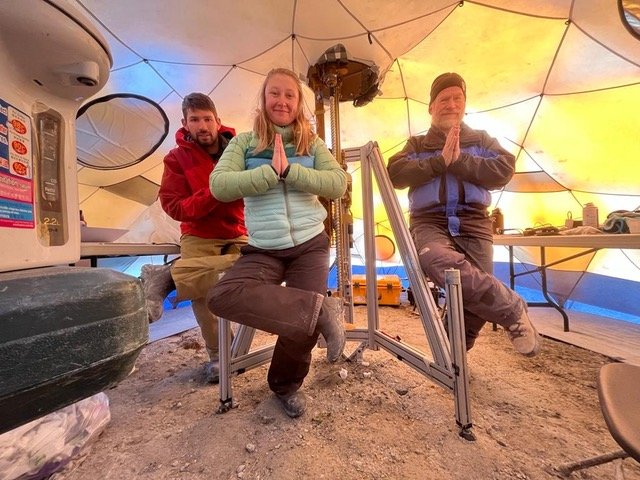Robotics Colloquium: Guest Speaker Brian Glass
If humans look for extant or anicient life, or access subsurface resources on other Solar System bodies, drilling will be the likely route to access any biosignatures or resources. Beyond the Moon, lightspeed time delays to Earth preclude teleoperation, so robotic drilling and sampling on Mars and beyond require automation (or else nearby humans). For the past two decades, our lab at NASA Ames has looked at drilling autonomy issues. In this talk, we will start with how humans do these tasks in terrestrial exploration and look for ways to replicate or mimic these perceptive and decision-making processes. We will follow a narrative from 2004 to the present on how our fielded approach has evolved in lab tests and remote analog drilling sites, ending with our current software. With stops along the way in Antarctica, with the Icebreaker Mars software requirements, with the ARADS drilling life-detection rover tested in the Atacama Desert (adding in sample handing robotics and planetary protection/contamination issues) up to recent tests in the desert and Arctic in 2023 at analog sites.
Dr. Glass is a research group lead in the Exploration Systems Directorate at NASA Ames Research Center. He received an ScB from MIT (Aero and Astro) in 1982, a PhD (robotics) from Georgia Tech in 1987, and later an MS from Stanford in 1992 (Geophysics). In addition to serving as a PI of several recent research projects in robotic drilling, sample acquisition, and handling, his background in space systems programs includes Space Station networks (1990s), AI/robotics space technology development (2000s), and sampling payloads integration in three “Icebreaker” Discovery mission proposals (2010, 2015, 2019). Dr. Glass is also a pilot who led the inter-agency FAA-NASA Surface Movement Advisor air traffic ground system's rapid 2-year development and deployment (1994-96). He has research interests in robotic sample acquisition and processing, impact crater geophysics, and structural modeling, and he chaired NASA’s Space Sample Acquisition Workshop in 2013. For the past two decades, Dr. Glass has been involved in the development and testing of NASA planetary surface engineering prototypes at remote field analog sites, including the Canadian Arctic, Antarctic Dry Valleys, Rio Tinto (Spain), Mauna Kea, the Atacama Desert (Chile) and the US Southwest. He has a share of nine NASA Group Achievement Awards and two US Patents and received a NASA Exceptional Technology Achievement Medal (for robotic drilling) in 2019.
